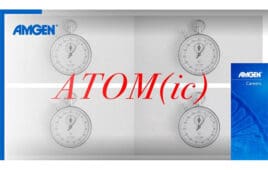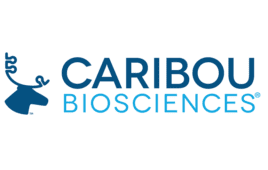
Katie Abouzahr
Dr. Katie Abouzahr’s career, which began in the wards of the UK’s National Health Service (NHS) before extending into management consulting, paved the way for her leadership of autoantibody and maternal fetal medicine programs at Johnson & Johnson. “It’s not a typical pharma executive’s straight line path,” she acknowledged. “Careers can often be jungle gyms as opposed to ladders that you climb one rung at a time. It’s always a mixture of opportunity, timing, serendipity, and persistence.”
Those qualities helped pave the way for her current focus on autoantibody-based conditions marked by high unmet need. Drawing on her experience across clinical medicine, consulting, and drug development, Abouzahr focuses on advancing medicines for autoimmune and autoantibody-driven diseases, which are marked by high unmet need. The broader immunology area is a central of area of focus for Johnson & Johnson, with 25 indications in development across autoimmune diseases spanning common conditions ranging from Crohn’s and psoriasis to rare disorders like warm autoimmune hemolytic anemia. “It’s immense unmet need across multiple, multiple different diseases,” Abouzahr said.
A career in three acts
In the first act of her career, Abouzahr focused on direct patient care across a range of specialties including transplantation medicine, cardiology, and general internal medicine. Working on the frontlines of the UK’s National Health Service gave her a practical understanding of patient needs and challenges within the healthcare system, but didn’t afford a horizontal understanding of the broader machinations of the healthcare landscape.
Seeking to expand her perspective, in her second career act, Abouzahr pivoted to working as a management consultant at Boston Consulting Group for over a decade. “I very specifically went into BCG to do healthcare consulting,” she explained, consulting for a range of clients, including pharma, biotech, regulators, payers, and providers. That experience helped her piece together the metaphorical jigsaw puzzle of the healthcare system. “I began to understand how healthcare and social care in the U.K. are interconnected,” she reflected.
About two-thirds into her tenure at BCG, Abouzahr moved to the U.S., eventually assuming the roles of Global Women&BCG Fellow and senior principal. In the former role, she was responsible for researching diversity in the workplace. “We ran proprietary research that corroborated that ultimately diversity in all its forms is good for business,” Abouzahr said.
Ultimately, Abouzahr felt a calling to get “back closer to patients,” which led to a transition to Johnson & Johnson, where she started out as head, R&D operations in 2019. Over the next four years at J&J, Abouzahr took on roles of increasing responsibility, culminating in her June 2023 appointment as vice president, autoantibody portfolio and maternal fetal disease area leader.
The mission to advance autoantibody drug development
In her new leadership post, Abouzahr highlights the promise of innovative therapies to shift the standard of care for autoantibody-based diseases. One of the core therapies under Abouzahr’s purview is nipocalimab, an antibody that is the subject of extensive research and clinical trials for a variety of medical conditions. Acquired through J&J’s $6.5 billion acquisition of Momenta Pharmaceuticals in 2020, the antibody is designed to selectively block the Fc receptor (FcRn) to reduce levels of circulating immunoglobulin G (IgG) antibodies. As Abouzahr explained, “Nipocalimab is unique as it’s in development across all three segments of autoantibody diseases.” It acts as an anti-FcRn, blocking the neonatal Fc receptor and reducing IgG recycling, to decrease autoantibodies.
Nipocalimab thus shows potential in treating immune-mediated diseases. Johnson & Johnson is investigating the antibody for indications ranging from including myasthenia gravis, hemolytic disease of the fetus and newborn, and rheumatoid arthritis to Sjogren’s syndrome, lupus, and other rare diseases. This diversity of applications has led the company to describe it as a “pipeline in a pathway.” While there are more than 80 autoimmune disorders, Johnson & Johnson is focused on developing on about 10 initially for nipocalimab.
She also highlighted the historical neglect in the maternal-fetal disease space. For instance, rho (D) immunoglobulin (RhoGAM), a treatment for Rho (D) incompatibility that can lead to serious complications such as hemolytic disease of the newborn in future pregnancies, first won FDA approval in 1968.
Unmet need as a guiding principle
“I would say that the work I do has deep meaning in all areas,” Abouzahr said. “But I think for many of us in the maternal-fetal immunology space, that meaning is amplified given this field’s historically neglected status in terms of drug development.”
Abouzahr notes that, in maternal fetal immunology, there are no approved therapies for women who are at risk of these diseases who are alloimmunized. In the context of maternal-fetal immunology, alloimmunization can occur when there is a mismatch between a woman and fetus, leading to the formation of maternal antibodies. Those antibodies can then lead to varying degrees of transplacental passage of these antibodies into the fetal circulation, potentially leading to hemolytic disease of the newborn.
While maternal-fetal medicine has seen neglect, the broader field of autoimmunity also carries great unmet need. With more than 2.5% of the world’s population affected by autoantibody-driven autoimmune disease, Abouzahr underscored the potential to transform the standard of care in this area. “Many autoantibody-based diseases are rare and most don’t have safe, effective approved let alone targeted therapies,” Abouzahr noted.
Filed Under: clinical trials, Drug Discovery, Immunology, Obstetrics & gynecology, Rheumatology, Women in Pharma and Biotech



